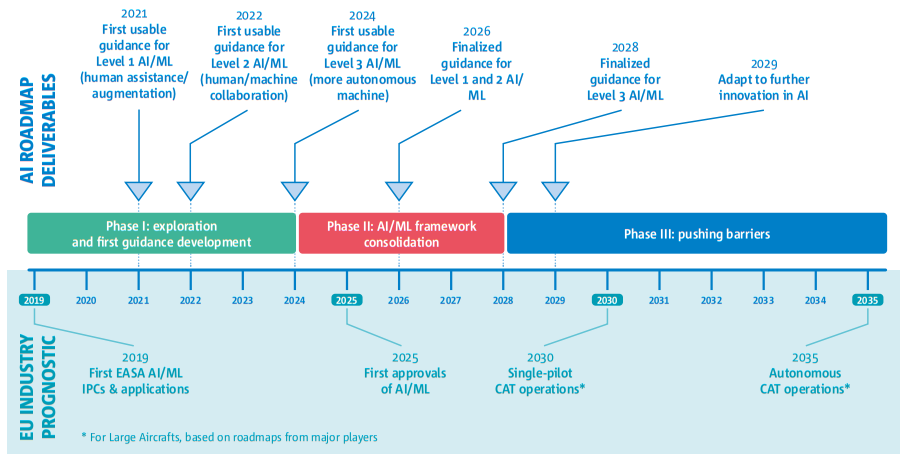Skyguide evaluating Artificial Intelligence to automate ATCO monitoring tasks through AISA research project
Skyguide continues evaluating Artificial Intelligence as an option to automate some of the monitoring tasks and share the same situational awareness with air traffic controllers in En-Route operations through the AISA (AI Situational Awareness Foundation for Advancing Automation) research project.
The recent development and acceleration of new Artificial Intelligence (AI) / Machine Learning (ML) technologies provide an opportunity to better monitor system performance, automating computation and repetitive tasks as well as detecting anomalies faster while a human expert can focus in areas where additional attention and problem solving are required. This translates to new opportunities for air navigation service providers such as Skyguide to improve safety, efficiency and capacity (once reliability and trust of AI in ATM are assured and established).
One of the AI initiatives Skyguide is engaging in is the AISA (AI Situational Awareness Foundation for Advancing Automation) SESAR Exploratory Research project within the EU Horizons 2020 programme. The project aim of AISA is simple and based on the firm belief that, a prerequisite for the implementation of advanced automation concepts is that artificial intelligence and humans can share the same situational awareness.
The project envisions to build an intelligent AI-driven, situation-aware system instead of isolated tools such as conflict detection or coordination systems. The AISA project will ultimately assess whether sharing the same team situational awareness among air traffic controllers and AI will enable the team of AI and Air Traffic Controllers (ATCOs) to reach the same conclusions when confronted with problems as well as to be able to explain the same or similar reasoning behind such decision making.

The challenge is to find the optimal human-machine cooperation process where trust in human-AI collaborative decision making can be built. The key enabler is to build a joint design team of ATCOs as operational experts, Human Factors experts and Artificial Intelligence scientists who work closely together and apply cognitive engineering method.
In an upcoming AISA experiment planned from November 2021 to Jannuary 2022, Skyguide’s current ATCOs from the Zurich Area Control Center (ACC) and the Human Factors experts from the AISA project will explore questions such as:
• Is AI Situational Awareness comparable to human (ATCO) Situational Awareness?
• Can AISA contribute to Team Situation Awareness as support for ATCOs?
• How does AISA react to new situations?
• Is AISA robust enough?
• What are the requirements for usability and further improvements if we were to use AI as a potential solution for ATCOs?
By answering above questions, we strive to implement the AI roadmap set by the European Union Aviation Safety Agency (EASA) as well as to tackle some of the challenges with respect to the trustworthiness of AI.
Those findings will also lead to the realization of Skyguide’s 2035 vision; “From air traffic control to air traffic management” so that:
- AI will enable higher automation in ATC by being fed with recordings on human operator strategies for resolving conflicts. Thus, AI could become capable of formulating resolution proposals assisting the ATCO.
- AI will be increasing the operational efficiency of air traffic control by converting inputs by ATCOs fed into the system to automate (be it by voice, by mouse click, etc).

Source: EASA Artificial Intelligence Roadmap 1.0 Link: EASA Artificial Intelligence Roadmap 1.0 | EASA (europa.eu)
The AISA project consortium includes the following members:
- Faculty of Transport and Traffic Sciences of the University of Zagreb
- Johaness Kepler University of Linz
- Technische Universität Braunschweig
- University of Applied Sciences of Zurich
- Polytechnic University of Madrid
- Skyguide
- Slot Consulting
For further information please visit the AISA website:
